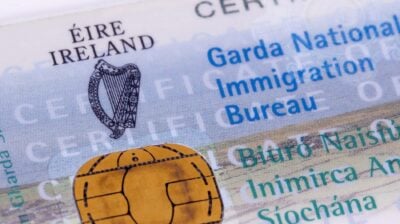On what grounds can I be expelled or suspended from school in Ireland?
Learn more about your rights when it comes to being suspended or expelled from school


This factsheet is an extract from the publication Know Your Rights: The Rights of Children and Young People published by the Children’s Rights Alliance. It is reproduced here with their kind permission. Know Your Rights is a public information project designed to inform everyone, in plain language, of the rights and entitlements children have in Ireland and where to go when they are not respected.
If you get into trouble at school your school must have a system that it follows. When students are disruptive in class or break rules, the system must deal with them fairly.
What rules do I have to obey in school?
The Board of Management of every school must have a student code of behaviour. The code of behaviour explains the rules you must follow when you are in school. It will also say what will happen if you do not follow the school’s rules.
Your school will give you and your parents or guardian a copy of the code of behaviour when you enrol. The school may ask your parents or guardian to confirm in writing that they agree with the code and that they will do all they can to help you obey the rules.
If you cause trouble in school, the school may consider a number of options like:
- Detention: you must stay in school during lunchtime or after school for an hour or so
- Confiscation: the school may take away something, like your mobile phone
- Temporarily excluding you from class : you are sent the principal’s office
If your behaviour is more serious, the school can suspend you or even expel you. However, the school must act fairly and give you a chance to have your say.
What happens if I am suspended from school?
Being suspended means you are not allowed to attend school for a set number of days. A school may suspend you if you have seriously misbehaved. The school’s decision must be reasonable and reflect the seriousness of what you have done. Schools must have procedures in place that show the steps they must take before they can suspend you. If a school suspends you but does not follow the procedures you can appeal their decision.
What happens if I am expelled from school?
Being expelled means you cannot attend the school again. By law, schools must have procedures in place which outline the steps they must take before they can expel you. For instance, the school’s Board of Management must tell the Educational Welfare Service that the school intends to expel you.
The school must then wait at least 20 days before it can expel you. In certain circumstances a school might suspend you until the expulsion has taken place. The Educational Welfare Service will try to find a way to prevent the expulsion and make sure that you still get an education, perhaps in another school.
Can I appeal my suspension or expulsion?
Yes, but you cannot appeal it yourself, your parent or guardian can appeal it for you. They must first appeal to the school’s Board of Management. If this is not successful, they can appeal to the Department of Education and Skills.
An appeals committee will hear the appeal and make recommendations to the Secretary General of the Department on the action to take. The Secretary General will then write to your parents or guardian and to the school’s Board of Management with the decision and reasons for the decision.
The Secretary General may also tell the Board of Management how to resolve the issue.
If you need information and support you can contact the Children’s Rights Alliance:
- Phone: 01-902 0494
- Email: [email protected]
What do I do if a teacher hits me at school?
No-one is allowed to hit you or be physically abusive to you in any way. If you have been physically abused at school by a teacher or anyone else, you should tell your parents or guardian, or an adult you trust. You, or your parent or guardian acting on your behalf, can complain to the Gardaí. Your parent or guardian may also complain to the school on your behalf. You can also complain to the Teaching Council of Ireland.
What can I do if I think my teacher is treating me unfairly?
If you feel a teacher is treating you unfairly you cannot make a complaint directly, but your parent or guardian can complain on your behalf directly to the teacher. If you are not happy with the teacher’s response, your parents or guardian can complain to the school principal. If the issue is not resolved, your parent or guardian can make a formal complaint to the school’s Board of Management.
Finally, if you feel that the way your complaint was handled by the school was unfair, you can complain to the Ombudsman for Children’s Office.
What can I do if a teacher is discriminating against me?
If the complaint is about discrimination, your parent or guardian may complain to the Workplace Relations Commission. To do this, within two months of the last act of discrimination, you must first notify the school you are making the complaint. If you are dissatisfied with how the school responds, or it has failed to respond within one month, you can complain to the Workplace Relations Commission. You must do this within six months of the last act of discrimination.
If the complaint is about a data protection issue, you can complain to the Data Protection Commissioner.
Need more information?
We are here to answer your questions and talk through your options. Our online chat service is for 16 to 25 year olds and is available Monday to Friday, 4pm to 8pm. Chat to us now about your situation.
- Chat now to a trained Youth Information Officer
- Or leave us a message and we will email you back






